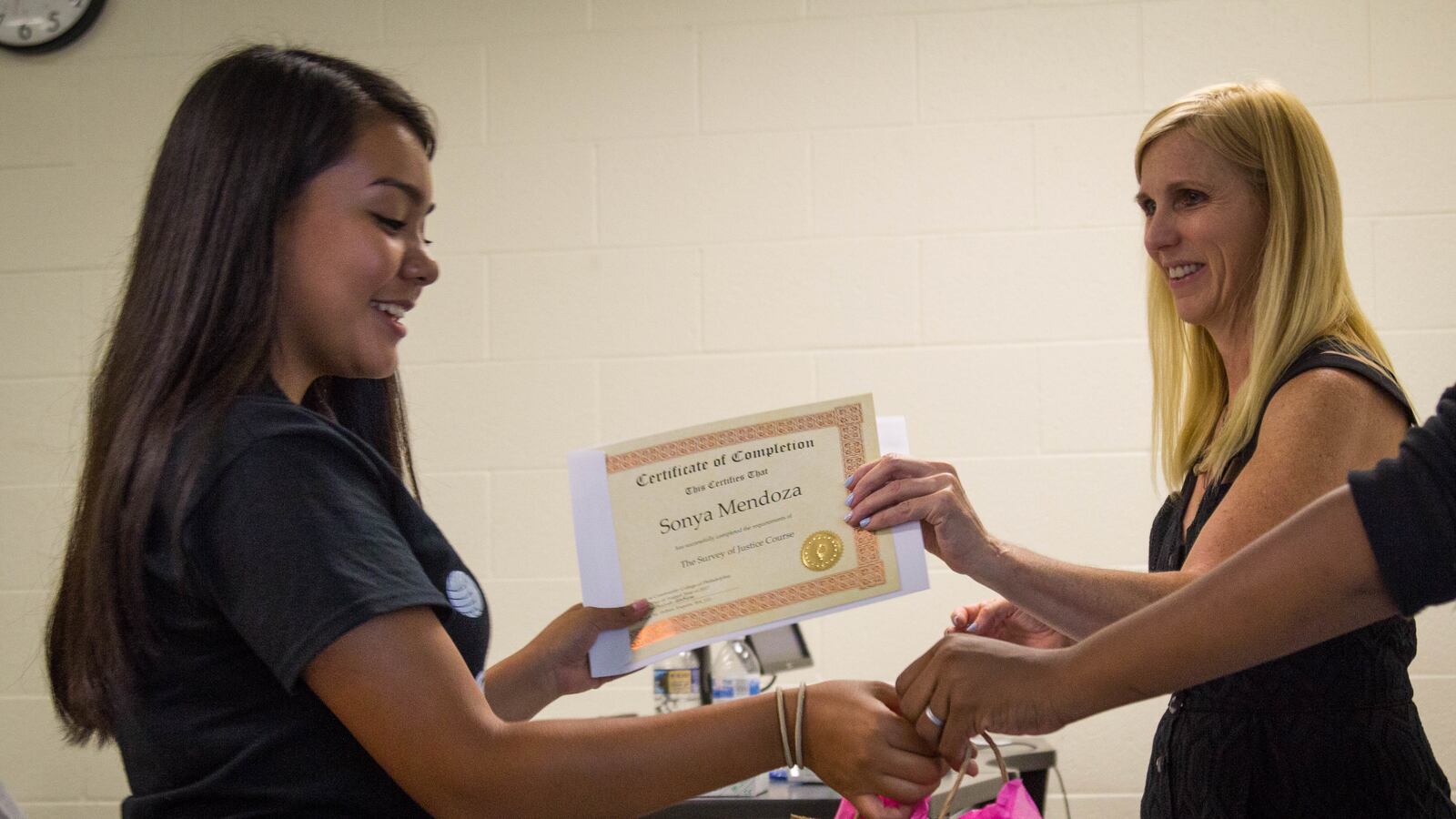This article was originally published in The Notebook. In August 2020, The Notebook became Chalkbeat Philadelphia.
Adrian Mondragon is only 14 years old, but he started college this summer. In July, just weeks after graduating middle school, Mondragon enrolled in a general education course at Community College of Philadelphia (CCP).
“It’s a big change from middle school,” said Mondragon. “You think of going into high school as something a little bit higher than middle school, but not too much. But when you come and see this, it’s a whole different [thing]. The game has changed a lot.”
A big change, indeed, and not just for him.
Mondragon is one of 132 students who enrolled in the city’s first middle college at Parkway Center City High School, which starts this fall.
Started in 1974 in New York City, middle colleges are high schools whose curriculum is a blend of high school and college-level classes. Upon graduation, students receive a diploma and an associate’s degree. There are around 50 middle colleges in the country, and Parkway is the first in Pennsylvania. The District will pay CCP about $4 million for the program over four years.
“We know that when students are exposed to a college environment in high school, they are more successful in college and career,” said Superintendent William Hite.
In early July, the students started their first college courses in the school’s Summer Bridge program, where they got a jump-start on their coursework. Those who succeed will receive college credit before entering high school.
To be officially enrolled, students had to attend the Summer Bridge program. So on July 10, 132 students made their enrollment official as they began their five-week college courses.
“To be a part of that is exciting, because every single middle college is unique,” said Parkway principal Anh Nguyen-Brown, former principal of Nebinger Elementary. “And every city and every state is different. So to make it our own, that’s the challenge, but that’s the [point of] pride.”
One hundred and forty-five students from across the city were accepted to fill 150 slots. The ideal candidate kept a clean disciplinary record, had strong standardized test scores, showed college aspirations, participated in the required interview process, and showed strong academic performance — only one C is allowed in major subjects.
Sonya Mendoza, along with Mondragon, enrolled in a Survey in Justice course. Summer Bridge, she said, “helps you realize what college really is and if you are ready and you want to take college courses.” “It’s really cool. We have a lot of responsibilities, and they treat us like adults so we’ll know what is expected in college,” she said.
Graduates of the middle college can earn certificates in entrepreneurship, computer programming, and software development, and an associate’s degree in liberal arts. But students can also get a taste of campus life with clubs and programs, such as chess, poetry, dance, and anime.
In 2011, when Hite was the superintendent of Prince George’s County, Maryland, Public Schools, he saw the opening of a middle college – Academy of Health Sciences at Prince George’s Community College. The school had a positive impact on students, especially those who had low college aspirations.
According to District spokesman Lee Whack, Hite wanted to provide Philadelphia students the same opportunity. Whack said that about half of the students enrolled in middle college are first-generation college students.
“The thing is, our kids can do it,” said Brown, Parkway Center City’s principal. “Why not Philadelphia? Why not our kids? Our kids deserve it. They can do it. So why not provide them with the opportunity to do it?”
Mondragon, one of those students, said he doesn’t know exactly what college he wants to go to, other than an Ivy League university. But college is important to him, he said, because no one else in his family finished college, and he’s ready to be the first.
“I look at myself as the one who needs to do this for the whole family,” he said.
After he completed the Survey in Justice course, though, Mondragon’s uncertainty changed. The rising high school freshman expressed interest in a justice career after learning about the criminal justice system during classes and field trips to Eastern State Penitentiary and Superior Court.
“I didn’t know that courts and stuff were that interesting,” he said. “Now, I am going to get into that. I am considering it. I want to do something like that.”
Mondragon and Mendoza, along with their classmates, received certificates for completing their first college course.
Mendoza also shared a newfound appreciation for the law and a better understanding of the legal system.
“Before I started this, I didn’t like laws at all,” she said. “I didn’t want to know about them because I wasn’t all about that. … I used to think it was boring, with too many complicated things, but this made me realize that it is important to know about laws and it’s not that bad.”
Both Mendoza and Mondragon said that the program was worth it, and now they are focused on completing it and excelling in college.
“I thought this summer was going to be wasted by this program,” said Mondragon. “But it didn’t turn out that way. It turned out to be what I was looking for.”


